
The Spiritual Adepts
Sri Ramakrishna once said, "Whoever has thought of God sincerely even once, has to come here." And truly, many sadhakas of all hues flocked to him.
Vijaykrishna Goswami
In Sri Ramakrishna's room in Dakshineswar, a sincere sadhaka was asked to narrate his pilgrimage. He replied, "I see that everything is here where I am sitting. It's no use wandering around. At some places there are one or two annas of him (Sri Ramakrishna), four annas at other places, that's all. Only here do I find the full sixteen annas." Then with folded hands he told Sri Ramakrishna, "I have now recognised who you are! You don't need to tell me." Sri Ramakrishna entered into an ecstatic state and said, "If so, so be it."
Saying "I have understood,", the sadhaka prostrated at Sri Ramakrishna's feet, and then held them to his chest. Sri Ramakrishna sat like a statue, unaware of the outer world. Seeing this wonderful scene and the flood of divine love, some devotees began to weep; others sang hymns of praise.
When Sri Ramakrishna returned to normal consciousness, the sadhaka told him, "I saw you in Dhaka in this form, in this very body. I even touched this body. I feel that somebody is always with me."
Sri Ramakrishna told the assembled devotees, "See what a state of mind he has developed! All his characteristics have changed; he has softened. I can recognise a Paramahamsa by his neck and forehead."
This fortunate sadhaka was Vijaykrishna Goswami, a descendent of Advaita Goswami who was a companion of Sri Chaitanya Mahaprabhu. He was god-loving from early childhood, and later became an acharya of Brahmo Samaj. After meeting Sri Ramakrishna, he took to the path of bhakti and started longing for direct God-realisation. He later became a revered guru by his own right and started ashramas in Dhaka and Gaya.
This story is from the {{IssueName}} edition of {{MagazineName}}.
Start your 7-day Magzter GOLD free trial to access thousands of curated premium stories, and 9,000+ magazines and newspapers.
Already a subscriber ? Sign In
This story is from the {{IssueName}} edition of {{MagazineName}}.
Start your 7-day Magzter GOLD free trial to access thousands of curated premium stories, and 9,000+ magazines and newspapers.
Already a subscriber? Sign In

Panchakroshi Parikrama of Varanasi
At the snow-capped Kailas, the Divine Lord Shiva was seated with Mother Parvati.
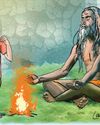
Gadai and the Monks
A fictional narrative based on incidents from the childhood of Sri Ramakrishna.
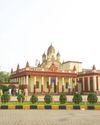
Chintayo momo maanosho Hori...
Sri Ramakrishna loved songs. There probably was no normal day when he did not sing some songs.
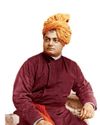
The Vedanta Vaccine
The world is still struggling under the impact of the pandemic due to Covid-19 for the last three years.
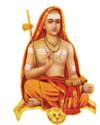
Chandrakirti's Chariot: Self in Madhyamaka Buddhism and Advaita Vedanta
The goal in Advaita Vedanta is the cessation of suffering and the attainment of true fulfillment. Suffering, according to this school, is due to ignorance of the true nature of the self and consequent erroneous identification with the body-mind.
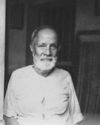
Reminiscences of Sargachhi
Question: यद्यदाचरतत श्रेष्ठसतत्तदरेवरेतरो जनिः। ‘Whatever a superior person does, others do the same thing!’ (Gita 3:21) – What does this statement mean?
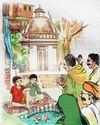
THE AUTUMN FESTIVAL
A fictional narrative based on incidents from the childhood of Sri Ramakrishna.
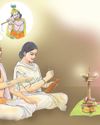
Bards of Guruvayur: Vilwamangalam II
Saints of India
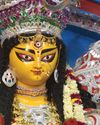
In the Universal Mother’s Divine Playground
Swami Vivekananda never taught the worship of Mother Kali. In a letter to Mary Hale he writes, “Kali worship is not a necessary step in any religion.
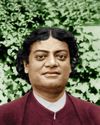
Swami Vivekananda: A Sportsman Par Excellence
In various books and articles, Swami Vivekananda has been called a spiritual leader, a prophet, a patriot, a social reformer, a philosopher, a yogi, a writer, an orator, an educationist, a musician, and so on.